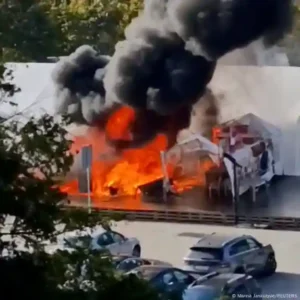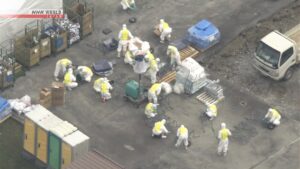A day after a Hezbollah drone strike near the private residence of Israeli Prime Minister Benjamin Netanyahu, Netanyahu held a series of meetings with his security advisers to discuss the next attack on Iran, according to Al Arabiya. Planning for such an attack has been underway for three weeks, as Iran fired about 200 ballistic missiles into Israel following Israeli assassinations of Iranian militia leaders.
Saturday’s precise drone strike on Netanyahu’s beach house north of Tel Aviv surprised many Israelis. Although neither Netanyahu nor his wife were at home and no one was injured, he and his ministers said there was more reason to fight. “There is no doubt that another red line has been crossed here,” Israeli Foreign Minister Israel Katz told Israel’s Channel 14 on Saturday night. “We must defeat Iran’s ability to carry a threat.”

While Iran anticipates Israel’s attack—and has vowed to hit back even harder after Hezbollah drone strike —it has denied any involvement in Saturday’s drone attack on Netanyahu’s home in the city of Caesarea. The recovery took longer than expected, possibly due to coordination between the United States and Israel. Washington urges Israel to avoid striking energy or nuclear facilities and has sent Israel sophisticated ballistic missile defense weapons in case Iran retaliates.
A Pentagon document apparently leaked over the weekend detailed some of Israel’s preparations for such an attack. The leak, whose authenticity has not been verified, appeared on the Telegram account of a pro-Iran group called Middle East Spectator. On Sunday, Netanyahu’s office said that while it respects the advice of the United States, Israel makes its own decisions. It is not clear when a decision will be made or when the recovery will occur. Energy Minister Eli Cohen told Channel 14: “There is no facility, military or civilian, or person in Iran that is safe. No one sleeps well at night.”
Donald Trump, the former US president who is running for election next month, said at a campaign rally that Netanyahu called him and told him that after recent Israeli killings of militia leaders, including that of Yahya Sinwar of Hamas, the country was in a much better position to attack Iran and its proxies.
Netanyahu’s Sunday planning for the attack on Iran, first with his close advisers and then with his security cabinet, came at the end of another day of intense military activity in Lebanon and Gaza. Hezbollah fired dozens of shells into northern Israel. In Lebanon, the Israeli military said it had hit a command center at Hezbollah’s intelligence headquarters and an underground weapons workshop in Beirut.
In northern Gaza, health authorities said an overnight Israeli attack on the town of Beit Lahia killed dozens of people. The Israeli military disputed the death toll but said it was pursuing Hamas members who had re-established themselves in the area. More than 42,000 Palestinians have been killed in the year-long war, which erupted when members of Hamas invaded southern Israel, killing 1,200 people and kidnapping 250. About 100 hostages remain in Gaza, half of whom may still be alive, and Israel is offering rewards to Gaza for their return.
Israel’s assassination of Hamas leader Sinwar was seen by many as a potential turning point, a moment when the fighting could give way to negotiation and diplomacy. But since then, little has changed, and the fighting has intensified with Hezbollah and Hamas. Both are considered terrorist organizations by the United States and other countries.
Separately, Israel expressed concern that the Palestine Liberation Organization (PLO), led by Palestinian Authority President Mahmoud Abbas, offered condolences to Sinwar and described him as a martyr and a “great national leader.”
“We are not surprised,” Netanyahu’s diplomatic adviser, Ophir Falk, said of the PLO’s statement. “They have never condemned the massacre of October 7 and have a long history of praising the mass murderers of Jews.”



